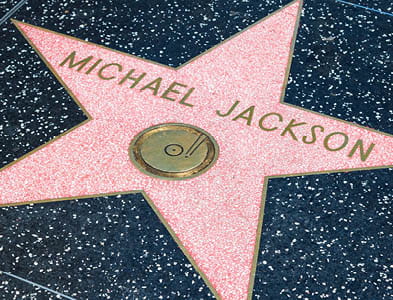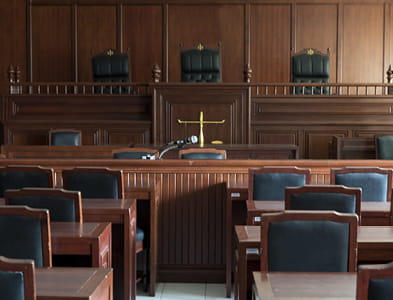Court Case Commentaries and Reviews Expert Analyses for Informed Decision Making
Subscribe to Case AlertsCourt Case Commentaries and Reviews Expert Analyses for Informed Decision Making
Subscribe to Case AlertsStout regularly researches significant trust & estate tax and valuation-related cases and provides expert analyses. We examine the background behind a case as well as the court’s proceedings leading up to a decision.
Our professionals regularly work on high-stakes cases in federal and state jurisdictions and have been retained by top U.S. law firms and attorneys, with more than 1,600 expert appearances collectively across 47 states. Additionally, we work directly with government agencies, including the Department of Justice, the Department of Labor, the Internal Revenue Service, and the Securities and Exchange Commission, to resolve our clients' issues. We utilize our extensive experience both inside and outside of the courtroom to analyze recent cases so others can make informed decisions.
Trust & Estate — Tax Court Cases
Michael Jackson’s Estate Moonwalks Past the IRS in Tax Court Battle
The opinion on the King of Pop’s assets may serve as a helpful guide for experts involved in the valuation of the right of publicity and copyrights.
Tax Court Ruling Highlights Importance of Formula Clauses
The Tax Court’s decision reflected that the intent of donors is only as strong as the precise language in the formula clause.
IRS’ Game Theory Argument Gets Torpedoed by Expert’s Hot Tubbing
The decision in the case will likely be highly discussed for many years to come.
In Grieve Case, Tax Court Reaffirms Fair Market Value Standard
Stout’s appraisal of the taxpayer’s LLCs reiterated the accepted approaches to valuing minority interests in privately held investment entities.
Estate of Aaron U. Jones v. Commissioner of Internal Revenue
Tax Court finds Income Approach is more appropriate than others in valuation of minority interests of two companies.
Valuation Disputes — Court Cases
Delaware Court Decides AT&T Breached Fiduciary Duty of Loyalty to Minority Partners in Freeze-Out Transaction
Case Review: In re Cellular Telephone Partnership Appraisal Coordinated C.A. No. 6885-VCL
Delaware Chancery Court Again Embraces the Adjusted Deal Price Methodology
But while the starting deal price is clear in HFF, more nuance is required to determine the adjustments.
A Familiar Plot With Several Twists in Regal-Cineworld Case
Delaware Chancery Court’s fair value determination is slightly above the deal price in a merger between these two national movie theater chains.
In Final Hartman Ruling, Words Literally Matter
In this shareholder dispute, plain meaning of the words on the page ruled the day in Indiana Supreme Court.
Delaware Chancery Court Sides With Petitioner’s Expert in Appraisal Proceeding
Lacking market-based evidence of fair value, the court relied on traditional valuation methodologies in its decision.
Delaware Chancery Court Finds Fair Price Was Paid in UIP Stock Sale
Applying the entire fairness standard, the court ruled the defendants met their burden.
In Re: Appraisal of Stillwater Mining Company – Delaware Court Opts for Deal Price – Again
The court found that while the sale process was not perfect, the facts of this case, when viewed as a whole, compared favorably with the facts in other recent Court of Chancery cases.
In Re: Appraisal of Columbia Pipeline Group, Inc. – Delaware Court Opts for Deal Price
The Delaware Court of Chancery opined against the petitioners' proposed valuation.
In Re: Appraisal of Jarden Corporation – Market Price and DCF Analysis
The Delaware Chancery Court relied on the unaffected market price and performed an independent DCF analysis to corroborate the most persuasive market evidence.
Fair Value Methods of the Delaware Chancery Court: Deal Price Less Synergies
We discuss the valuation of synergies and present a framework for allocating value between buyer and target in an M&A transaction.
Delaware Supreme Court Reverses Aruba Decision
In ruling, the court uses deal price less synergies in deriving the fair value of Aruba Networks, Inc.
Kress v. U.S. Offers Important Guidance for Appraisers
The gift tax matter covered the Guideline Public Company Method, S corps versus C corps, discounts for lack of marketability, transfer restrictions, and more.
Long-Term Growth Rate Trends in Delaware Chancery Decisions
Recent decisions illuminate the Delaware Court of Chancery’s perspective on long-term growth rates in discounted cash flow analyses.
Domain v. Shah Highlights Several Key Valuation Considerations
The Delaware Chancery Court ruled that Shah be awarded fair value of his LLC member interest rather than the book value of his capital account.
Merger Price Carries the Weight in Delaware Chancery’s Solera Decision
The Delaware Court of Chancery’s ruling was consistent with previous appraisal cases and found that representative DCF models were not credible.
In Norcraft, the Delaware Court Offers Further Valuation Guidance
The opinion in Blueblade v. Norcraft marks another instance in which the Delaware Chancery Court exclusively relied on DCF analysis in determining fair value.
Delaware Chancery Court Decision in Appraisal of AOL Inc.
Stout's expert analysis of factors used in the Delaware Chancery Court ruling in In re Appraisal of AOL Inc. to determine the fair value of the Verizon transaction.






















